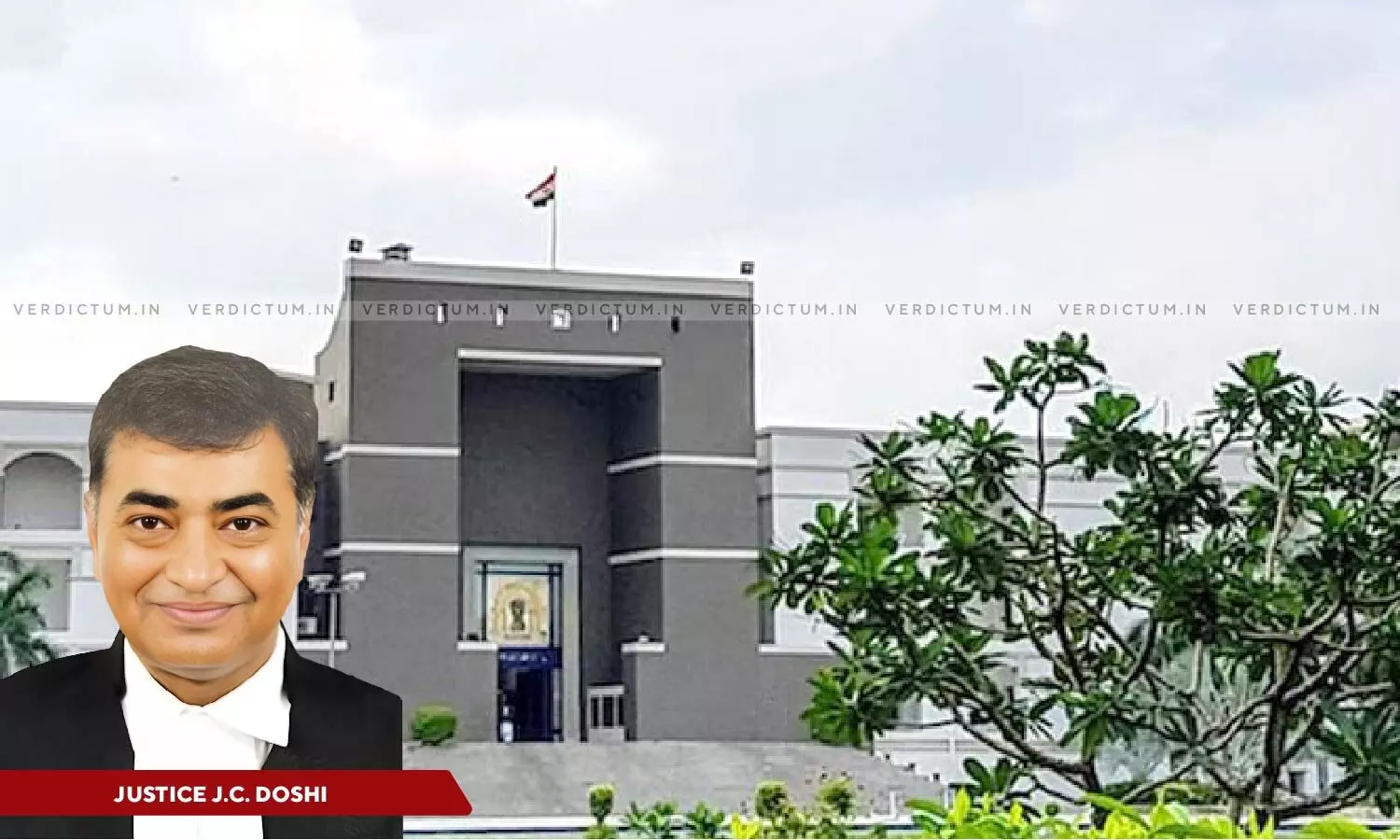
Justice J.C. Doshi, Gujarat High Court
No Public View, Intentional Insult: Gujarat High Court Upholds Acquittal In SC/ST Atrocities Case
 |
|The case arose from alleged caste-based abuse and assault, but key witnesses, including the complainant, turned hostile.
The Gujarat High Court upheld the acquittal of an accused under the Scheduled Castes and Scheduled Tribes (Prevention of Atrocities) Act, 1989. The Court stated that public view and intentional humiliation are essential ingredients under Section 3(1)(x) of the Act which were absent in the present case.
A Bench of Justice J.C. Doshi held, “In the present case, admittedly, there is no public view. Apart from the complainant, his wife and the accused, no third persons were present on the spot. Therefore, even if, it is believed that certain words are spoke to derogate or hamber the complainant on his caste, the prosecution failed to prove that it was intentional and spoken with an intention to hamper the complainant. In view of this, according to this Court, the offence of Atrocities Act is not made out.”
The Court further added, “So far as offences punishable under the IPC are concerned, there cannot be an intentional insult with an intent to provoke breach of peace. These essential ingredients are totally lacking on reading the FIR as well as all the evidence on record. At no point of time, it comes on record that because of intentional insult by the accused, the complainant was provoked to break public peace or to commit any other offence.”
Advocate Asmita Patel appeared for the Appellant and Advocate R.H. Thakker appeared for the Respondents.
Background
The case stemmed from a 2007 incident in which the accused allegedly drove a tractor into a Scheduled Caste locality, hurled caste-based slurs at the complainant, issued threats, and assaulted him. An FIR was registered and charges were framed under Sections 323, 504, and 506(2) of the Indian Penal Code (IPC) and Section 3(1)(x) of the SC/ST (Prevention of Atrocities) Act.
During the trial, however, the complainant and key witnesses either turned hostile or gave inconsistent testimonies. Notably, the complainant denied being assaulted or verbally abused, and his wife, also present at the scene, failed to corroborate the alleged caste-based remarks.
Reasoning
The Court on re-evaluating of evidence, found that key prosecution witnesses, including the complainant and his wife did not support the core allegations under the Atrocities Act. Complainant denied any assault or caste-based abuse, and wife failed to back the prosecution. Their inconsistent testimonies weakened the case.
The bench referred to “Georige Pentaiah v. State of Andhra Pradesh”, it held that the lack of "public view" and absence of independent witnesses excluded the offence from Section 3(1)(x).
The High Court held, “The learned Trial Court has thoroughly evaluated the prosecution evidence and ascribed reasons showing how the case fell short of the standard of ‘beyond reasonable doubt’. This Court finds no sufficient material to interfere with the acquittal.”
The High Court dismissed the criminal appeal filed by the State, affirming the trial court’s findings and reinstating the accused’s acquittal. The bail bond was also cancelled.
Cause Title: State of Gujarat v. Laxmanji Sadaji Thakor & Anr.
Appearance:
Appellant: Advocate Asmita Patel
Respondent: Advocates R.H. Thakker and V.R. Halani
Click here to read/download Order